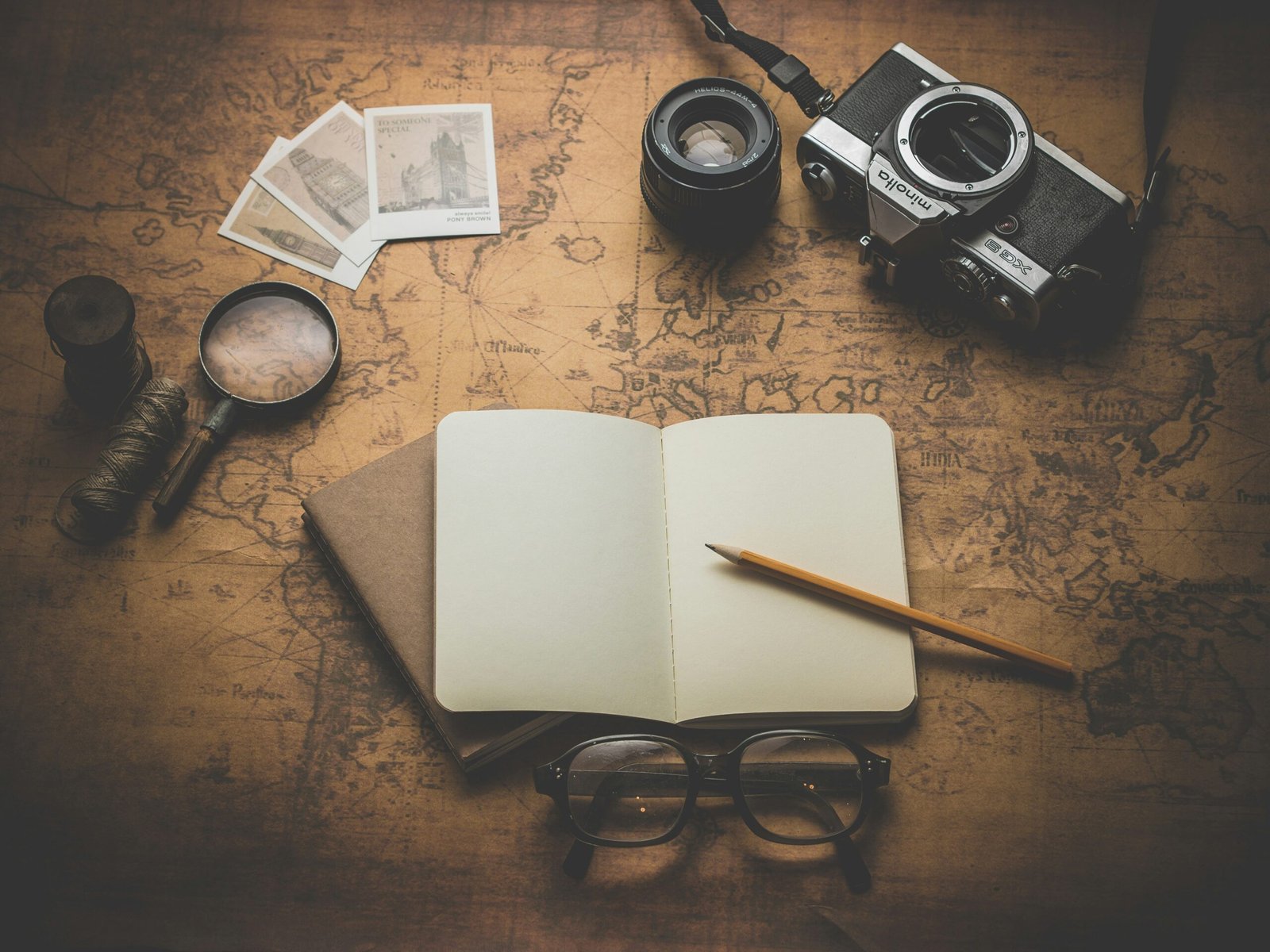Introduction to the Rewards of Travel
Travel has long been a fundamental aspect of human life, dating back to ancient civilizations when exploration was essential for trade, conquest, and cultural exchange. Over the centuries, the motivations behind travel have evolved significantly. What once was a necessity has gradually transformed into a leisure activity, driven by a desire for adventure, relaxation, and personal enrichment. Today, travel is more accessible than ever, thanks to advances in transportation and technology, making it a popular pursuit for people worldwide.
The allure of travel lies in its ability to offer a break from the routine, providing opportunities to explore new environments, experience different cultures, and gain fresh perspectives. Whether it’s a weekend getaway to a nearby town or an extended trip to a distant country, the act of traveling invites individuals to step out of their comfort zones and immerse themselves in unfamiliar settings. This shift in surroundings can lead to profound personal growth and a deeper understanding of the world.
In the modern context, travel serves not only as a means of recreation but also as a catalyst for self-discovery and learning. It opens doors to new experiences that challenge preconceived notions and broaden horizons. The rewards of travel are manifold, encompassing emotional, psychological, and even physical benefits. As we delve into the various advantages that travel offers, it becomes evident why it remains such a cherished and enriching activity for people of all ages and backgrounds.
This blog post aims to explore the multifaceted benefits of travel, shedding light on why so many individuals find it a rewarding endeavor. From enhancing mental well-being to fostering cultural appreciation, each section will delve into specific aspects that contribute to the overall value of travel. By understanding these benefits, readers can better appreciate the transformative power of exploring new places and cultures.
Cultural Enrichment and Understanding
Travel offers a unique opportunity to immerse oneself in diverse cultures, traditions, and ways of life. This exposure to different cultural norms and practices can significantly broaden an individual’s perspective and foster a deeper understanding and empathy for people from various backgrounds. Whether through attending local festivals, sampling traditional cuisines, or engaging with local customs, travelers can experience firsthand the rich tapestry of human diversity.
For instance, participating in a local festival, such as the vibrant Holi festival in India, allows travelers to witness and partake in centuries-old traditions that celebrate the triumph of good over evil. Similarly, savoring authentic dishes like sushi in Japan or tapas in Spain provides insights into the culinary heritage that shapes the daily lives of people in these regions. Engaging with local customs, such as the tea ceremonies in China or the traditional dances in Bali, further enriches the travel experience by offering a glimpse into the cultural values and social practices that define these communities.
Such cultural experiences can challenge preconceived notions and stereotypes that travelers may hold. By interacting with people from different cultural backgrounds, travelers often discover that their assumptions are based on limited or inaccurate information. This realization promotes a more open-minded and inclusive worldview, as travelers learn to appreciate the nuances and complexities of different cultures. For example, a traveler who initially views a particular culture through a narrow lens might come to understand the significance of certain practices once they witness them in context and engage with the locals who uphold them.
Ultimately, the cultural enrichment gained through travel extends beyond mere enjoyment. It fosters a greater sense of global citizenship, encouraging individuals to embrace diversity and contribute to a more connected and compassionate world. By breaking down cultural barriers and building bridges of understanding, travel serves as a powerful tool for personal growth and societal harmony.
Personal Growth and Self-Discovery
Travel often serves as a remarkable catalyst for personal growth and self-discovery. When individuals step out of their familiar surroundings and immerse themselves in unfamiliar environments, they are compelled to navigate a myriad of challenges and opportunities that foster significant personal development. Stepping out of one’s comfort zone is a powerful way to build confidence and resilience, as it exposes individuals to new cultures, languages, and customs, necessitating adaptability and open-mindedness.
One of the most profound benefits of travel is the opportunity it provides for self-reflection. Away from the routines and responsibilities of daily life, travelers can gain a clearer perspective on their values, goals, and passions. This reflective process can be instrumental in uncovering new interests or reaffirming existing ones, leading to a more fulfilling and purpose-driven life.
Moreover, travel often enhances problem-solving skills. Whether it’s figuring out how to communicate in a foreign language, navigating an unfamiliar city, or adapting to unexpected changes in plans, travelers are frequently presented with situations that require quick and effective decision-making. These experiences build resilience and resourcefulness, qualities that are invaluable in both personal and professional contexts.
An example of personal growth through travel can be seen in the story of Maria, a young professional who embarked on a solo trip to Southeast Asia. Initially apprehensive about traveling alone, Maria found herself in situations that tested her independence and problem-solving abilities. From negotiating with local vendors to finding her way in bustling markets, each challenge she faced bolstered her confidence. By the end of her journey, Maria not only felt more self-assured but also developed a deeper appreciation for cultural diversity and human connections.
In essence, travel’s ability to promote personal growth and self-discovery is unparalleled. It encourages individuals to push their boundaries, develop critical life skills, and gain insights that contribute to their overall well-being. Through these transformative experiences, travelers often return home with a renewed sense of self and a broader understanding of the world around them.
Building Relationships and Social Connections
Travel has the unique ability to foster deep and meaningful relationships, both with those we travel alongside and the new acquaintances we encounter along the journey. When we travel with companions, the shared experiences—whether it’s navigating a bustling market in Marrakech or watching a serene sunset in Santorini—create a strong bond. These moments of joy, challenge, and discovery contribute to strengthening relationships, as they become treasured memories that are reminisced upon for years to come.
Moreover, travel opens doors to meeting new people from diverse backgrounds, offering fresh perspectives and enriching our lives in unexpected ways. The friendships formed during travels can be particularly profound, as they are often built on shared passions and interests. Meeting fellow travelers in hostels, joining local tours, or even striking up conversations with locals can lead to lifelong connections. These relationships broaden our social networks and provide a deeper understanding of different cultures and lifestyles.
The advent of travel communities and social media groups has further amplified the potential for building these connections. Platforms like Facebook and Instagram host numerous travel-centric groups where like-minded adventurers share tips, itineraries, and experiences. These communities are not just virtual; they often translate into real-world meetups and friendships. Additionally, websites dedicated to travel meetups or couch-surfing offer opportunities to connect with locals who are eager to show their culture and hospitality to travelers.
Ultimately, the social connections and relationships forged through travel contribute significantly to the overall rewarding nature of the experience. They provide emotional support, create opportunities for cultural exchange, and enrich our personal and professional lives. In a world that is increasingly interconnected, the bonds we create while traveling remind us of our shared humanity, making each journey not just an exploration of places, but a celebration of the people who inhabit them.
Health and Wellness Benefits
Travel offers a myriad of health and wellness benefits, both for the body and mind. One of the most significant advantages is its ability to reduce stress. When individuals travel, they often find themselves in new environments, away from the routine pressures of daily life. This change of scenery can provide a much-needed mental break, alleviating stress and promoting relaxation. According to a study published in the Journal of Travel Research, individuals who take vacations report lower levels of stress and higher levels of life satisfaction upon their return.
Moreover, travel can significantly improve mental well-being. Exposure to different cultures and experiences can lead to personal growth, increased creativity, and a broader perspective on life. Engaging with new environments can stimulate the brain, enhancing cognitive flexibility and resilience. Research from the American Psychological Association shows that travel can help combat anxiety and depression by fostering a sense of adventure and novelty.
Physical activity is another critical component of the health benefits associated with travel. Whether it’s hiking in the mountains, swimming in the ocean, or simply walking around a new city, travel encourages physical movement. This increased activity can improve cardiovascular health, boost energy levels, and enhance overall physical fitness. A study from the Global Commission on Aging and Transamerica Center for Retirement Studies found that travel can lead to better physical health and even a reduced risk of heart disease.
Travelers can maximize these health benefits by taking a few proactive steps. Engaging in local physical activities, such as joining a local yoga class or renting a bike, can keep one active while exploring new destinations. Practicing mindfulness, through meditation or simply being present in the moment, can enhance the mental health benefits of travel. Additionally, maintaining a balanced diet by sampling local cuisine in moderation can support physical well-being while enjoying the pleasures of travel.
By understanding and leveraging these health and wellness benefits, travelers can enrich their travel experiences and return home feeling rejuvenated and revitalized.
Educational Opportunities
Travel serves as an invaluable educational experience, extending learning far beyond the confines of a traditional classroom setting. When one visits historical landmarks, museums, and natural wonders, they are afforded a unique opportunity to delve deeply into subjects such as history, science, and geography. These visits offer a tangible connection to textbook knowledge, transforming abstract concepts into concrete experiences.
For instance, exploring the ancient ruins of Rome or Athens provides profound insights into the intricacies of classical civilizations, offering a firsthand look at architectural marvels and historical artifacts that shaped human history. Similarly, museums like the Louvre in Paris or the Smithsonian in Washington D.C. house extensive collections that bring art, history, and culture to life. These institutions not only display exhibits but also provide interactive experiences that engage visitors in active learning.
Natural wonders, such as the Grand Canyon or the Great Barrier Reef, present an unparalleled opportunity to understand geological processes and marine biology. These sites serve as living classrooms where one can witness the forces of nature at work, fostering a deeper appreciation for environmental science and conservation efforts.
Experiential learning, facilitated by travel, makes education more engaging and memorable. Rather than passively absorbing information, travelers actively participate in their educational journey. This hands-on approach to learning stimulates curiosity and enhances retention of knowledge. For example, a traveler sharing their experience of trekking through the Amazon rainforest may recount how they learned about diverse ecosystems and indigenous cultures, enriching their understanding of biology and anthropology.
Countless travelers have enhanced their knowledge and skills through their journeys. Whether it is learning a new language while navigating the streets of Tokyo or understanding the political history of Berlin through its memorials and museums, the educational benefits of travel are immense. These experiences not only broaden one’s intellectual horizons but also instill a lifelong love for learning.
Boosting Creativity and Inspiration
Traveling to new destinations offers a unique opportunity to break free from daily routines and immerse oneself in novel experiences, which can significantly boost creativity and inspire new ideas. The unfamiliar environments and diverse cultural landscapes encountered during travel serve as fertile ground for stimulating the mind and sparking innovation.
For many artists, writers, and innovators, travel has been a crucial source of inspiration. For instance, the renowned author Ernest Hemingway drew much of his literary inspiration from his extensive travels across Europe, Africa, and the Caribbean. Similarly, Vincent van Gogh’s time in Arles, France, profoundly influenced his artistic style, resulting in some of his most iconic works. These examples underscore how exposure to different settings and cultures can lead to groundbreaking creative achievements.
On a cognitive level, travel enhances creativity by exposing individuals to diverse ways of thinking and living. When travelers engage with new environments and cultures, they are often compelled to adapt and think outside of their usual paradigms. This cognitive flexibility is crucial for creative problem-solving and innovation. Studies have shown that people who have lived abroad or traveled extensively are often better at generating creative solutions and making connections between seemingly unrelated concepts.
Moreover, the sensory experiences associated with travel – such as the variety of colors, sounds, and tastes – can also stimulate creative thinking. The vibrant markets of Marrakech, the serene landscapes of the Swiss Alps, or the bustling streets of Tokyo each provide unique sensory inputs that can inspire new artistic and intellectual pursuits.
In conclusion, travel plays an essential role in boosting creativity and inspiration. By stepping outside familiar surroundings and engaging with new cultures and environments, individuals can unlock new perspectives and ideas, fueling their creative endeavors and broadening their cognitive horizons.
Conclusion
In our exploration of why travel is so rewarding, we have highlighted numerous benefits that underscore its enriching nature. From broadening one’s cultural horizons and fostering personal growth to providing opportunities for relaxation and adventure, travel serves as a multifaceted experience that can significantly enhance one’s life. Engaging with new environments, cultures, and people allows travelers to build empathy, gain new perspectives, and develop a deeper understanding of the world. These experiences contribute to a more enriched and fulfilling life.
Travel also offers practical benefits, such as the development of problem-solving skills, improved adaptability, and increased confidence. Whether you’re navigating a new city, learning a few phrases in a foreign language, or simply stepping out of your comfort zone, each travel experience contributes to personal development in meaningful ways. Moreover, the memories and stories collected during travels often become cherished parts of one’s life narrative, providing joy and a sense of accomplishment.
As you reflect on your own travel experiences or consider embarking on new journeys, think about the potential benefits that await. Each trip, whether near or far, holds the promise of discovery, growth, and unforgettable moments. Embrace the opportunity to explore the world and, in doing so, discover more about yourself.
FAQs
Q: What tips do you have for first-time travelers?
A: Start by researching your destination thoroughly. Understand the local customs, language basics, and key attractions. Pack light and stay organized. Make sure to have copies of important documents, and always keep your valuables secure. Be open to new experiences and don’t be afraid to step out of your comfort zone.
Q: How can I travel on a budget?
A: Traveling on a budget requires careful planning. Look for affordable accommodations such as hostels, guesthouses, or vacation rentals. Use public transportation instead of taxis, and eat at local markets or street food vendors to save on meals. Consider traveling during off-peak seasons when prices are lower, and always keep an eye out for flight deals and discounts.
Q: What are some ways to stay safe while traveling?
A: Safety should always be a priority. Keep informed about the safety situation in your destination. Avoid risky areas and situations, and stay aware of your surroundings. Keep your belongings secure and travel with copies of important documents. Have a plan for emergencies, and always let someone know your itinerary. Trust your instincts; if something feels off, it’s better to be cautious.



